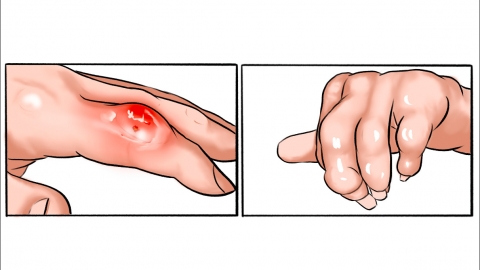How to treat gout most effectively
Generally speaking, there is no such thing as the "most effective way to treat gout." Main treatments for gout include dietary adjustment, lifestyle modification, medication, traditional Chinese medicine (TCM), and surgical treatment. The specifics are as follows:
1. Dietary Adjustment
Strict control of high-purine foods is required, such as animal offal, seafood, and concentrated meat broths, to reduce uric acid production. Increase fluid intake—aim for more than 2,000 mL of water daily—to promote uric acid excretion through urine. Choose low-purine foods such as fresh vegetables, fruits, and grains. Avoid alcohol consumption, especially beer, as alcohol can interfere with uric acid metabolism.
2. Lifestyle Modification
Maintain a regular sleep schedule and avoid staying up late or overexertion, which may trigger acute gout attacks. Control body weight through moderate exercise like walking or jogging, but avoid intense physical activity that could induce physiological stress. Keep joints warm and avoid cold exposure to prevent joint discomfort, thus creating favorable conditions for uric acid metabolism and disease stability.

3. Medication
Medications should be used under a doctor's guidance. Commonly prescribed drugs include allopurinol tablets, febuxostat tablets, and colchicine tablets. Allopurinol and febuxostat inhibit uric acid production and lower blood uric acid levels, while colchicine helps relieve joint inflammation and pain during acute gout attacks.
4. Traditional Chinese Medicine (TCM)
According to TCM, gout is associated with blockages caused by damp-heat and phlegm-stasis intermingling. Treatment focuses on clearing heat, eliminating dampness, resolving phlegm, and removing blood stasis. Commonly used herbal formulas include Simiao Pills and Danggui Niantong Pills. Acupuncture at points such as Zusanli (ST36) and Yinlingquan (SP9) can help unblock meridians, clear heat, remove dampness, and alleviate symptoms like joint pain and swelling.
5. Surgical Treatment
For large tophi that impair joint function or have ulcerated, surgical removal of tophi may be necessary. Surgery removes uric acid crystals from joints and surrounding tissues, relieving pressure on the joint and improving mobility. Postoperative wound care is essential to prevent infection.
In addition, patients must follow medical advice regarding proper medication use, undergo regular monitoring of serum uric acid levels, and adjust treatment plans accordingly. If severe joint pain, fever, or other signs of acute attack occur, prompt medical attention is needed to prevent worsening of the condition and joint damage.






